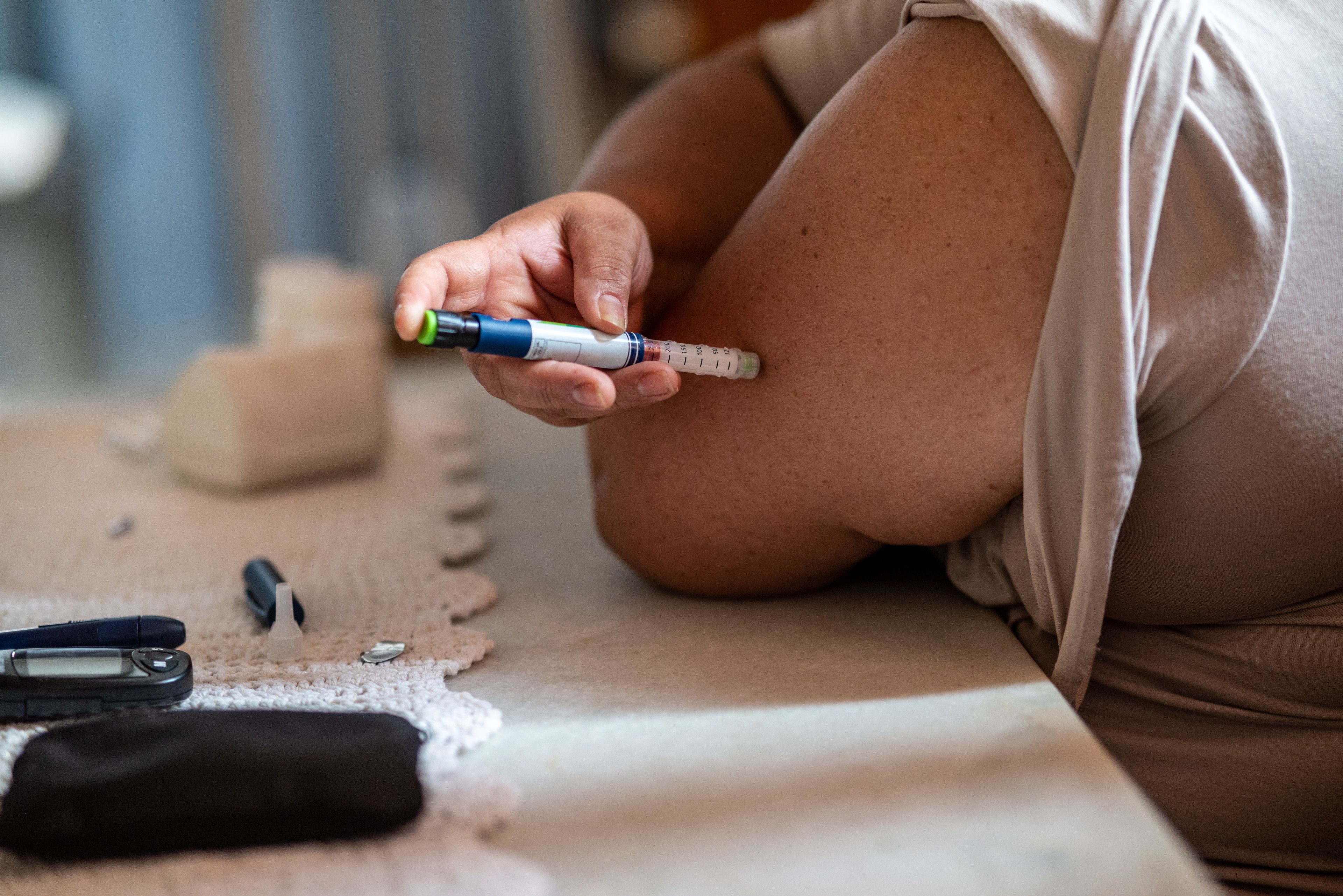Novo Nordisk (NVO +1.01%) has long been one of the best-run, most-focused, and most-successful specialty drug companies. It has also long been one of the most expensive, as investors have happily paid up for clockwork growth, leading share, and an excellent R&D enterprise.
The past year was an unusual one for Novo, though, as there were some real setbacks in the company's operations. Those setbacks had the shares trading for as close to "value" as it has in a long time, but the 30% run since November has these shares back at a premium valuation.
Closing a tough year on a weak note
Novo Nordisk did not have an especially good fourth quarter report, though most drug companies would consider themselves lucky to report these numbers for their own business. Revenue rose more than 3% as reported and about 10% in local currencies, but missed sell-side expectations by about 1% to 2%. Diabetes care sales rose nearly 4% as reported (and, again, about 10% in local currencies) as Victoza sales rose 25% and insulin analog sales climbed another 14% (both in local currencies).
Novo's gross margin was mixed; better than expected by almost a point, but still down a bit from last year. Novo also out-spent expectations on SG&A and R&D, leading to operating income growth of 9% but a 5% miss.
Is Express Scripts The First Battle In A Larger War?
Novo Nordisk lost its contract with Express Scripts, a large PBM services company that serves roughly 12% of U.S. covered lives. This was expected to be a serious headwind for both Victoza and NovoLog market share, but the initial impact has been less than feared. Prescription trends suggest Novo has lost about 2% to 4% of its prescription share, with the losses flattening. It's still very early, but it does not appear as though AstraZeneca and Lilly (LLY +1.38%) will gain as much from this move as previously thought.
My concern, though, is whether this is just an opening salvo. The three insulin companies (Sanofi, Lilly, and Novo Nordisk) have been enjoying strong pricing power of late, but more and more attention is being paid to the question of cost and how health care systems can/will afford to manage the growing incidence of diabetes worldwide (rising around 7% a year of late).
With that, I expect biosimilar insulins to be popular ... if and when they make it to market. Developing biosimilar insulin has proven challenging (Teva and Pfizer abandoned earlier partnerships), and Sanofi has filed suit to block, or at least delay, Lilly's attempt at biosimilar Lantus. If biosimilars are slow to market or fail to gain significant share, Novo Nordisk (as well as Lilly and Sanofi) may see more dramatic or drastic efforts to combat future price hikes.
Most of the data-related news in 2014 will be from others
Novo Nordisk has a deep and interesting pipeline, but 2014 is going to be pretty lackluster in terms of data coming from the company. There's a slim chance of data on oral semaglutide late in the year, and there will likely be an advisory panel meeting for the company's submission of 3mg liraglutide as a treatment for obesity.
Novo's competitors will be more active, though. Lilly will be reporting data from the AWARD-6 non-inferiority study comparing its GLP-1 drug dulaglutide to Victoza. Novo has seen Victoza withstand prior challenges from Sanofi's Lyxumia (and Sanofi) has pulled its U.S. application) and AstraZeneca's Victoza, but dulaglutide is expected to be a more formidable challenger. The data suggest that dulaglutide is competitive on HbA1c reduction but perhaps not as much on weight loss. Given the dynamics of the GLP-1 market, unless the data shows real superiority or Lilly is willing to compete aggressively on price, I think it will take a while for Lilly to really grab share.
In other news, Sanofi will be reporting data on its LixiLan combination of Lyxumia (GLP-1) and Lantus (insulin). As a reminder, Novo's combination IDegLira is being held up by the requirement of a multiyear CV outcomes study of Tresiba (the long-acting insulin). Lilly is also expected to report data around the middle of the year on Peglispro – a potential rival to Sanofi's Lantus and Novo's Tresiba and Levemir, but one with real concerns about potential side-effects.
A deep pipeline to generate value
Novo Nordisk is one of the relatively few companies still willing to make a major commitment to ongoing diabetes drug development. Tresiba (a long-acting insulin to rival Sanofi's Lantus or U300) has been held up by the need for an additional U.S. study, but interim data should be available in a couple of years. Meanwhile, the company is working on a longer-acting GLP-1 drug (semaglutide), as well as an oral formulation. Novo is also working on oral insulin, and while this is a low-probability candidate, the potential is huge. On the negative side, the company does lack DPP-IV and SGLT drugs, and doesn't seem quite as interesting in exploring new drug classes at the moment.
The bottom line
Valuation is almost always an issue with Novo Nordisk, and so it is today. Some will argue that Novo Nordisk's high share (nearly 50% of the global insulin market and about 5% of the non-insulin diabetes medication market) deserves a premium, particularly given the underlying growth in diabetes. You could also argue, though, that Novo has above-average sensitivity to efforts to combat price inflation in diabetes therapy and the FDA's increasingly demanding requirements for new diabetes medications.
I believe Novo Nordisk will continue to grow its free cash flow at a very high single-digit rate, but I think the stock is priced more for mid-to-high single-digit returns over the long-term. That's OK, but I generally shoot for more than "OK" when considering new investment ideas.








